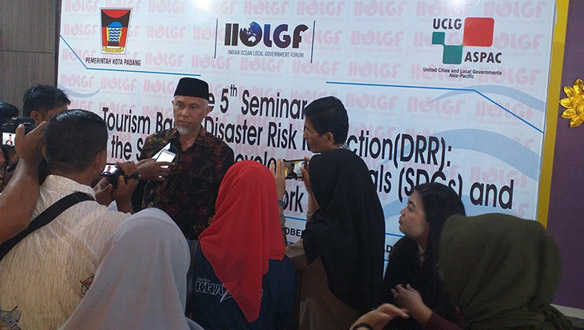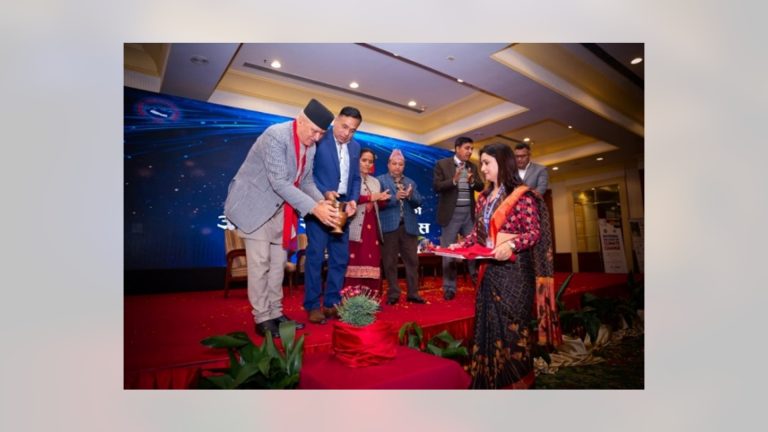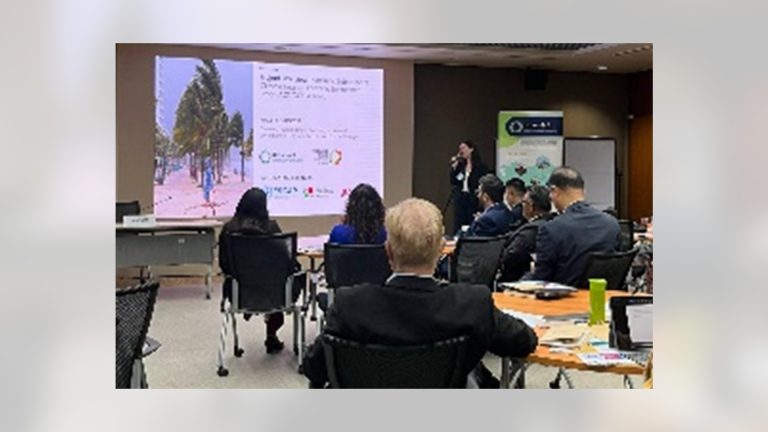31 October 2019 | PADANG – Many cities along the Indian Ocean suffered the most disastrous earthquake and tsunami that took place on 26 December 2014. Nearly 230,000 were killed or went missing in 14 countries. Indonesia was mostly hit with 167,540 people, including many children, listed as dead or missing. The combined damages were estimated at US$ 4,451.6 million, according to the International Tsunami Information Center (ITIC). The incident also left long-term impacts on tourism due to the destruction of infrastructures and myths that discourage people from visiting the cities.
The Indonesian-Indian Ocean Local Government Forum (IIOLGF) was formed in 2015, when 70 regencies decided to work together in five priority areas namely: disaster risk reduction and management, maritime and fisheries, tourism and cultural exchange, investment and trade, as well as education and technology. Padang Mayor Mahyeldi Ansharullah was then elected as IIOLGF first chairman. IIOLGF serves as important mechanism for Indonesia’s contribution to the Indian Ocean Rims Association (IORA), an international body for the cooperation among 21 countries along the Indian Ocean.
Within this framework, Padang City Government organised the 5th Seminar on Tourism Based-Disaster Risk Reduction (DRR): Linking the Sustainable Development Goals (SDGs) and Sendai Framework 2030, in collaboration with UCLG ASPAC, at Grand Inna Hotel, Padang, on 31 October 2019. The event focused on the important connections between specific priorities and targets for actions on DRR, and the broader SDGs implementation.
During the opening session, Padang Mayor Mahyeldi Ansharullah emphasised in his remarks that this annual event aims to improve the knowledge, insights and skills of IIOLGF members in disaster mitigation through sharing knowledge from the invited speakers. Further, he explained this seminar enabled us to share information, insights and experiences on issues of disaster, tourism, trade, investment, and IT with fellow members of IIOLGF and UCLG ASPAC.
The one-day seminar brought together experts, not only from Indonesian cities including Bengkulu, Padang, Banda Aceh and Batam, but also engaged national and international partners such as the Indonesian Tourism Ministry and Disaster Management Agency (BNPB), Seoul Metropolitan Government (SMG) and the Asia-Pacific Tourism Promotion Organisation (TPO). The plenary session focused on the linkage between the National Strategy on Sustainable Tourism and DRR, in line with global agenda (SDG 11) and Sendai Framework for DRR. The second session fostered peer sharing among cities. Key conclusions of the discussions are as follow:
- Local Governments should have a penta-helix cooperation model with multi sectors to prepare for emergency situations, especially with local travel agents, private sectors (hotels) and professional guides;
- It is important to develop and disseminate success stories on evaluation, in order to build trust among the public, inform relatives of affected people and promote city image on DRR;
- Role of country representatives (embassy and consulate) is important in sharing information or news regarding the city’s work on DRR and emergency responses. Embassy is the main government body that can build foreign visitors’ trust;
- Education for citizens to promote self-response preparedness during an emergency is very important. Local governments can help by developing a standardised tool kit for family learning.











